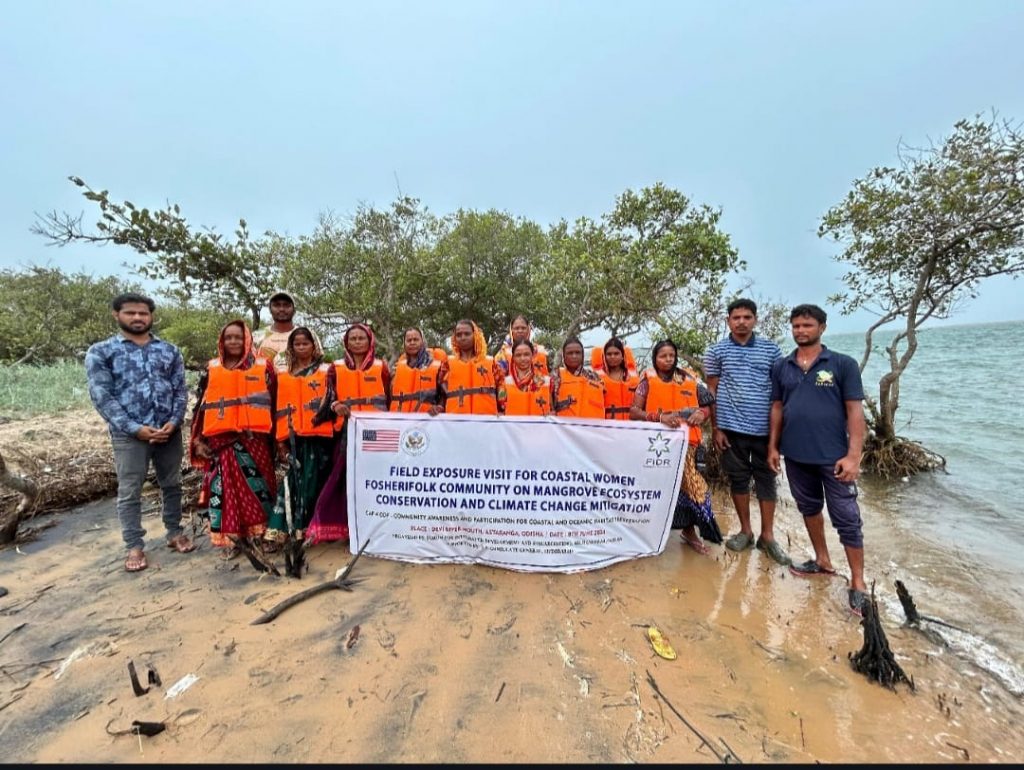Bhubaneswar: Plastic debris, originating from nearby villages and urban centres, is suffocating mangrove ecosystems, posing a significant threat to biodiversity and the coastal environment in the state. This was observed by a team of delegates from Odisha Paryavaran Sanrakshan Abhiyan (OPSA) Trust who recently visited the coastal regions and witnessed the alarming pace of mangrove degradation and its profound impact on marine health.
To address the issue, Forum for Integrated Development and Research (FIDR) Bhubaneswar with support from the US Consulate General Hyderabad, has started an initiative ‘CAP 4 COP-Community Awareness and Participation for Coastal and Oceanic Habitat Preservation’ with (OPSA) Trust. This initiative mobilised a team of stakeholders, including women, youth, local journalists, and elected representatives. During the field trip, the team covered key mangrove areas within a 15 to 20-kilometre radius, specifically targeting zones plagued by erosion and severe plastic pollution. According to experts, mangroves play a critical role in shoreline stabilisation, erosion prevention, and resilience against natural calamities. “The mangrove ecosystems also harbour a diverse array of species, ranging from large mammals to various avian species, crucial for maintaining ecological equilibrium,” they said. In addition, mangroves provide vital livelihood opportunities through fisheries, tourism, and handicrafts crucial for bolstering local economies. The initiative prioritised raising awareness among marginalised women from Jharling and Chhuriana Gram Panchayats in Astaranga block of Puri district. These women were identified as highly vulnerable to climate change impacts.
Leveraging interactive methods such as street play by coastal community artists and mural painting, the programme effectively engaged the wider community, fostering environmental literacy and encouraging active involvement in mangrove conservation efforts. Beyond mangrove preservation, the initiative aimed to integrate community efforts towards safeguarding Olive Ridley Sea turtles and preserving Chilika, a designated first Ramsar site of India. Educating communities on broader environmental issues aimed to instil sustainable practices and promote the conservation of local ecosystems. The initiative also included training on wildlife ethics, establishing mangrove nurseries, and exploring revenue models linked to community-based coastal biodiversity conservation.
The collaborative efforts with government officials, PRI members, and various local stakeholders played a pivotal role in advancing the initiative’s objectives. The field exposure visits underscored the urgent need for coordinated action in mangrove conservation to mitigate climate change impacts and safeguard coastal ecosystems. The initiative marks a significant stride towards nurturing environmental stewardship and resilience amidst mounting ecological challenges.
ARINDAM GANGULY, OP
